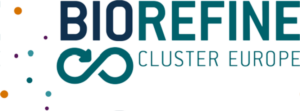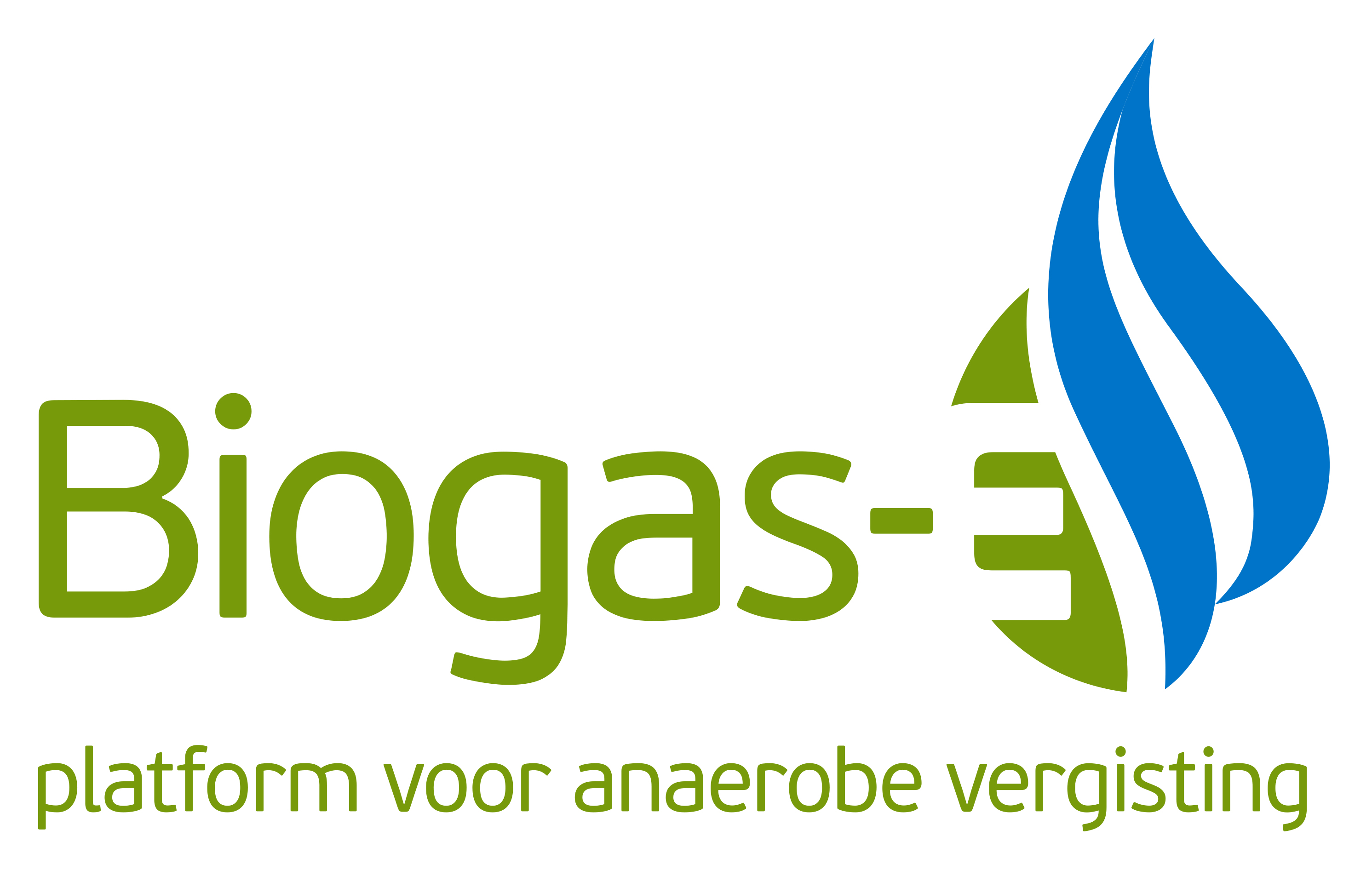English version: see below
Het project is opgebouwd uit vier focusthema’s:
1. Recuperatie van stikstof onder de vorm van ammoniak en ammoniumzouten
Enerzijds wordt de recuperatie van ammoniak via vacuümstripping van het digestaat onderzocht. Het N-arme digestaat wordt daarna gerecirculeerd om de positieve effecten op de verdere afbraak van de koolstoffractie te onderzoeken. Anderzijds wordt het gebruik van alternatieve, duurzame zuren zoals organisch citroenzuur en CO2 onderzocht op hun potentieel om ammoniak uit de gasfase te wassen via stripping-scrubbing.
2. Terugwinning van fosfor uit vloeibare en vaste digestaatfracties
Twee verschillende technologieën voor de herwinning van fosfor uit digestaat worden toegepast op de vloeibare en vaste fracties van het digestaat. Voor het oplosbare fosfor in de vloeibare fractie worden Mg- (struviet) en Fe-gebaseerde precipitatietechnieken getest. P-precipitatie uit het digestaat in de vaste fase wordt onderzocht met behulp van zuuruitloging op drie manieren: klassieke zuuruitloging, biologische aanzuring en zuuruitloging met het N-scrubberwater (spuiwater).
3. Maximalisatie van het energetisch potentieel van het vergistingsproces
De energetische inhoud van (behandeld) digestaat wordt verkend via de recirculatie van het behandeld digestaat naar de vergister of via opstellingen met een navergistingsstap. Parallel worden methaanverrijkingstechnieken voor het digestaat geanalyseerd.
4. Waardeketen en productbeoordeling
In het laatste thema worden de gerecupereerde digestaatproducten en de hele waardeketen geëvalueerd. De waardeketenbeoordeling wordt uitgevoerd op drie niveaus: implementatie van trapsgewijze strategieën, CO2-emissiereductiepotentieel en economische evaluatie. De productbeoordeling houdt een evaluatie in van de digestaatproducten naar samenstelling en kwaliteit, inclusief potproeven, enerzijds en hun potentieel als RENURE-meststof anderzijds.
Het project werd ingediend via de CORNET oproep, met Vlaamse partners Universiteit Gent, KU Leuven, VCM en Biogas-E, in samenwerking met Turkse partners Ostim Enerjik en Marmara Universiteit. Het project duurt twee jaar (en vier maanden door verlenging) en startte begin januari 2022.
BioDEN is lid van de Biorefine Cluster Europe

English version:
The project is composed of four focus themes:
1. Recovery of nitrogen in the form of ammonia and ammonium salts
On the one hand, the recovery of ammonia via vacuum stripping of the digestate is investigated. The N-poor digestate is then recirculated to investigate the positive effects on further decomposition of the carbon fraction. On the other hand, the use of alternative, sustainable acids such as organic citric acid and CO2 are investigated for their potential to wash ammonia from the gas phase via stripping-scrubbing.
2. Recovery of phosphorus from liquid and solid digestate fractions
Two different technologies for phosphorus recovery from digestate are applied to the liquid and solid fractions of the digestate. For the soluble phosphorus in the liquid fraction, Mg (struvite) and Fe-based precipitation techniques are tested. P-precipitation from the digestate in the solid phase is investigated using acid leaching in three ways: classical acid leaching, biological acidification and acid leaching with the N-scrubber water (scrubbing water).
3. Maximising the energetic potential of the digestion process
The energetic content of (treated) digestate is explored via recirculation of the treated digestate to the digester or via set-ups with a post-digestion step. In parallel, methane enrichment techniques for the digestate are analysed.
4. Value chain and product assessment
The last theme evaluates the recovered digestate products and the entire value chain. The value chain assessment is carried out at three levels: implementation of tiered strategies, CO2 emission reduction potential and economic evaluation. The product assessment involves evaluation of digestate products by composition and quality, including pot tests, on the one hand, and their potential as RENURE fertiliser on the other.
The project was submitted through the CORNET call, with Flemish partners Ghent University, KU Leuven, VCM and Biogas-E, in collaboration with Turkish partners Ostim Enerjik and Marmara University. The project will last two years (and four months by extension) and started early January 2022.
BioDEN is member of Biorefine Cluster Europe

Met steun van/with support from:
 |  |

